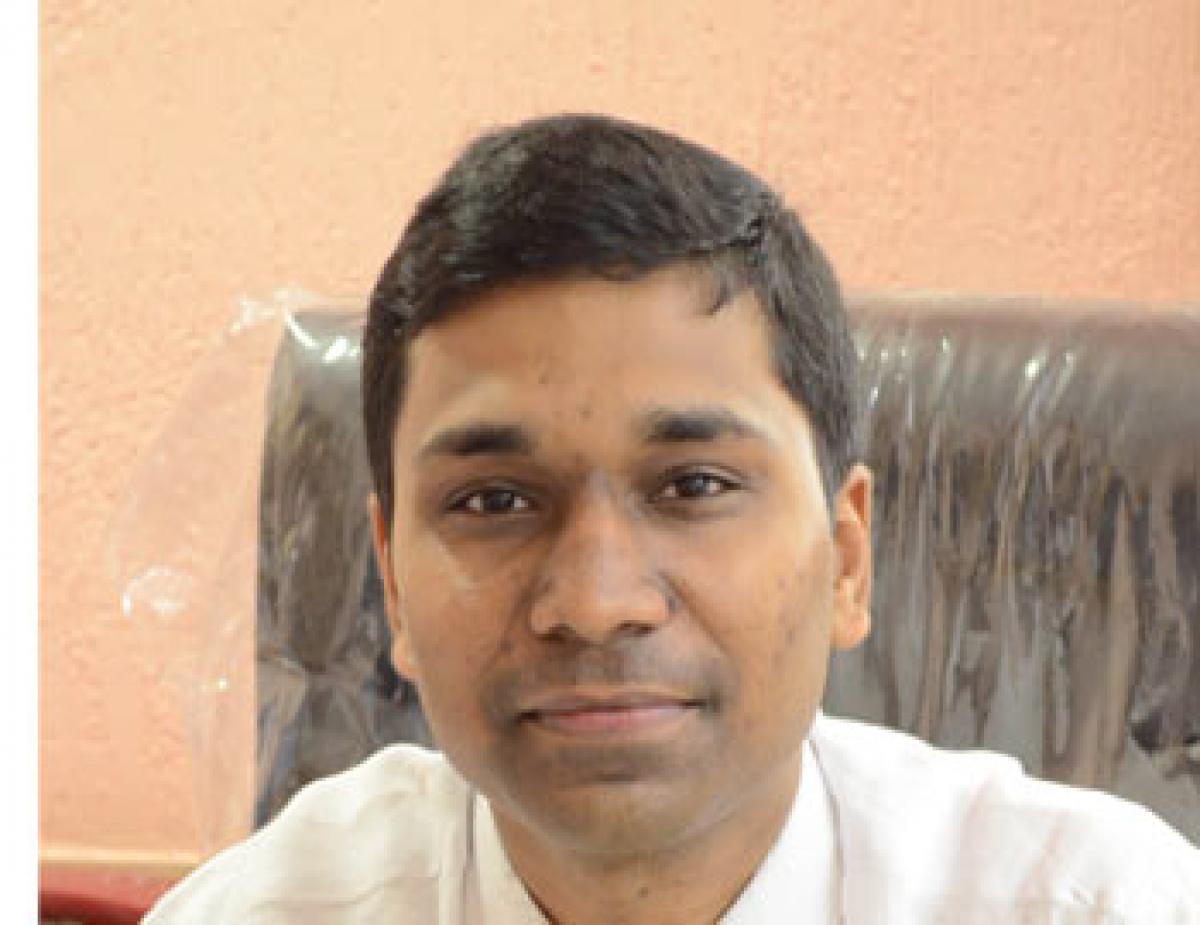Live
- 555th Prakash Purab celebrated with gaiety
- Good news for Atmakur farmers
- High-risk aortic valve replacement surgery performed successfully
- HMWSSB MD holds review meeting on OTS-2024 scheme
- Dhobi Ghat assessed for potential to host sports complex
- SCR bets on LHB train coaches for safety
- SVU felicitates best teachers
- Tata Group to market Araku coffee
- Union Min assures development of infra in tribal mandals
- KTR, Harish will turn political rivals soon: TPCC Chief
Just In

Is this Arthritis? See a Rheumatologist to know more. There are more than 100 different conditions, which come under the banner of Rheumatology including gout, osteoarthritis, rheumatoid arthritis, lupus, scleroderma, ankylosing spondylitis, vasculitis and osteoporosis among many others.
.jpg) There are more than 100 different conditions, which come under the banner of Rheumatology including gout, osteoarthritis, rheumatoid arthritis, lupus, scleroderma, ankylosing spondylitis, vasculitis and osteoporosis among many others. It is an exciting field of medicine, which is rapidly evolving thanks to the new developments in treatment and understanding of diseases. Early diagnosis and prompt treatment are essential for the management of rheumatological conditions with many patients leading a near normal life.
There are more than 100 different conditions, which come under the banner of Rheumatology including gout, osteoarthritis, rheumatoid arthritis, lupus, scleroderma, ankylosing spondylitis, vasculitis and osteoporosis among many others. It is an exciting field of medicine, which is rapidly evolving thanks to the new developments in treatment and understanding of diseases. Early diagnosis and prompt treatment are essential for the management of rheumatological conditions with many patients leading a near normal life.
Are you vulnerable to Arthritis?
Some of the common forms of arthritis are osteoarthritis, rheumatoid arthritis, psoriatic arthritis, ankylosing spondylitis, gout, lupus and others. Arthritis is a group of conditions affecting the joints, which cause symptoms of joint pain and stiffness. It can affect people from all ages, lifestyles and background and even children can get the disease. Contrary to popular belief, arthritis does not happen due to aging. However, some conditions are more common in the elderly.
Patients with arthritis have multiple symptoms but the common ones are pain, stiffness, swelling, redness and warmth over the affected joints and general symptoms like feeling tired, unwell and fatigued. They can also have weight loss and early morning stiffness lasting for more than 30 minutes. If the arthritis involves other organs like lungs, heart etc, patients may experience symptoms related to these organs like chest pain, shortness of breath or cough.
The exact cause of arthritis is not known. However smoking, environmental triggers, viral infections and genetic risk factors have been implicated in the development of certain forms of arthritis. Not all joint or muscle pain is due to arthritis. It could be due to injury. You should consult a rheumatologist if the joint pain fails to settle in a few days or is associated with swelling, warmth and redness of the joints.
Treatment options and lifestyle measures
The ‘window of opportunity’ in treatment of arthritis is in the early stages. Hence, it is important to diagnose and treat arthritis early before the joint is permanently damaged. Research and new drug development has made the treatment options for arthritis broader. In this modern era of health care, treatment options for arthritis are available but need to be tailored to the individual needs.
Your symptoms can be effectively controlled in most instances with medications or if needed, a joint injection. It is important you discuss with your rheumatologist the various options available for your arthritis. Staying active with regular exercise and maintaining an ideal body weight is simple measures to improve your joint symptoms along with the prescribed medications.
Maintain an active lifestyle, avoid all forms of tobacco and balance your rest and activities. It is important you find out from your Rheumatologist, the type of arthritis you have and how it can affect you. Learn to cope and manage with your pain through other measures. You should use measures when available to protect your joints from injury and gadgets to improve your disability.
Early diagnosis
Joint pains should not be taken lightly, particularly if it is persistent and onsets as morning stiffness. Seek immediate consultation from a Rheumatologist and initiate prompt and appropriate treatment to prevent disability and permanent damage. It is normal to feel scared, frustrated or angry during the course of your treatment due to the physical limitations and pain; feel free to discuss your emotional state with your rheumatologist. (The author is Consultant Rheumatologist, Apollo Hospital Jubilee Hills, Kukatpally and Secunderabad.)
By Dr Manish Dugar

© 2024 Hyderabad Media House Limited/The Hans India. All rights reserved. Powered by hocalwire.com







